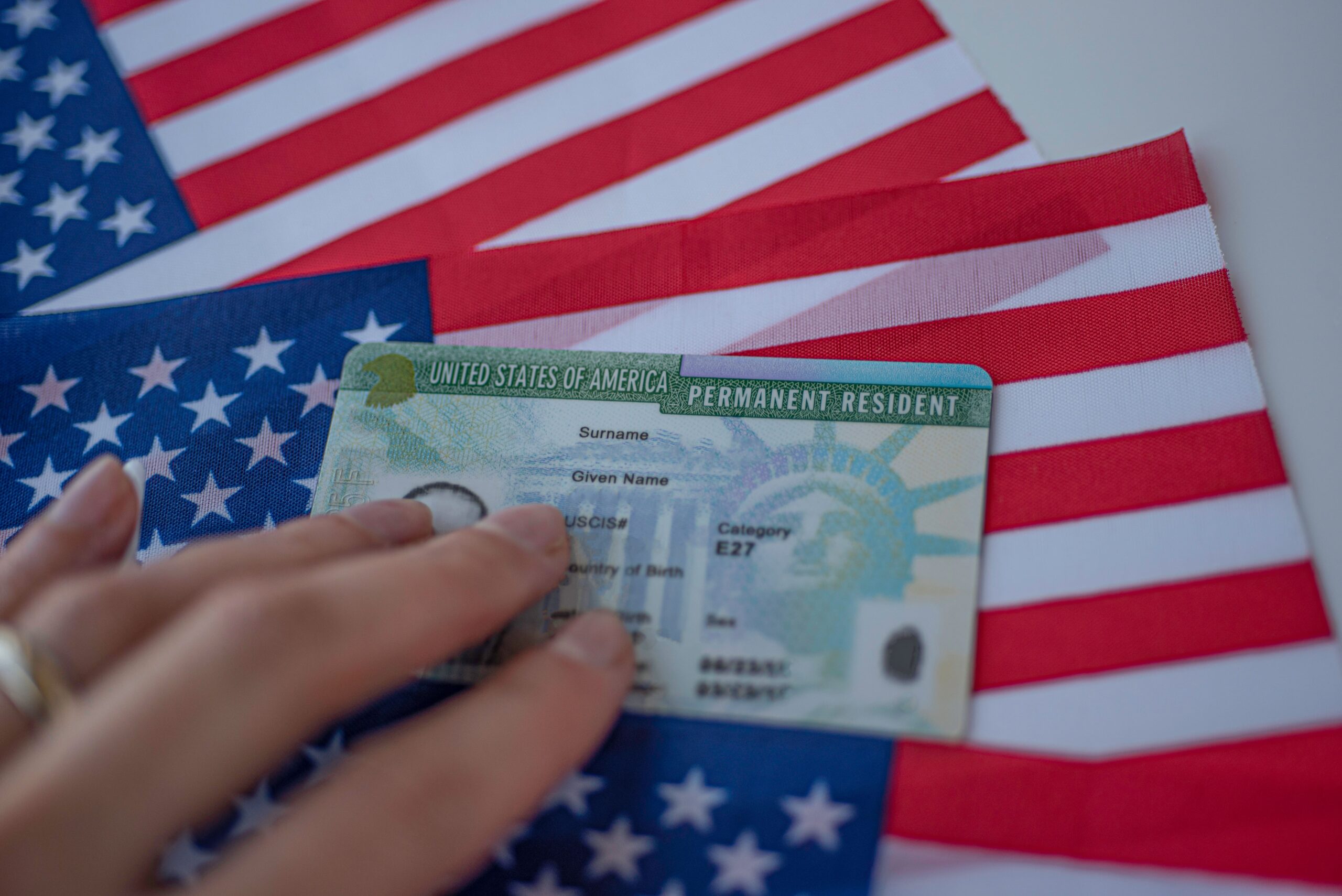Determining how to apply for a reentry permit can cause confusion even among those who know immigration law well. Lawful permanent residents (LPRs) should request a reentry permit from United States Citizenship and Immigration Services (USCIS) if they expect to be outside the U.S. for one year or longer.
If you need help applying for a reentry permit, contact the Law Office of Rosina C. Stambaugh. Our staff of immigrants and immigrants’ children understand that you may have ties abroad and want or need to stay outside the country for a time without abandoning your U.S. immigration status.
What Is a Reentry Permit?
A reentry permit authorizes LPRs to return to the U.S. after taking a trip abroad. Since green cards already authorize you to leave and return, the necessity of reentry permits can raise questions. Let’s take a look at how it works.
If you have a green card, you can generally only spend up to one year outside of the U.S. at a time and still maintain your LPR status. Spending longer outside the U.S. may lead the government to conclude you have abandoned your lawful permanent resident status. To avoid losing your status, you can apply for a reentry permit, which is typically valid for up to two years.
How Do You Apply for a Reentry Permit?
To apply for a reentry permit, you submit Form I-131, Application for Travel Document, to USCIS. That form will ask you to explain:
- Where you intend to travel,
- When you plan to depart,
- How long you expect the trip to last, and
- The purpose of the trip.
As of March 2024, USCIS is taking approximately 17.5 months to process Form I-131s. USCIS considers departing the U.S. while your I-131 is pending to be abandoning the application. So to avoid negative consequences, you’ll want to wait until your reentry permit application is approved before leaving the country.
But remember, you cannot extend a reentry permit. If you need additional time abroad, you may need to apply for a new permit or go through a U.S. Consulate.
What Happens If You Do Not Have a Reentry Permit?
If you want to return to the U.S. after an absence of one year or longer without a reentry permit, you will need to apply for a Returning Resident Visa through the nearest U.S. Consulate or Embassy. To qualify, you must have:
- Been an LPR when you left the U.S.,
- Intended to return to the U.S. since you left, and
- Been prevented from returning by reasons beyond your control.
You may also need to apply for a Returning Resident Visa if your reentry permit expires while you are abroad.
Can You Speed Up Your Reentry Permit’s Processing?
Waiting a year and a half for a reentry permit may be fundamentally incompatible with the reasons you need to travel. You can request that USCIS expedite your application if you can explain how waiting will cause or contribute to:
- Severe financial loss,
- An emergency, or
- An urgent humanitarian situation.
Losing your job can qualify as severe financial loss, but if you cause the need for the expedited request, USCIS may not grant it.
Emergencies often overlap with humanitarian situations. Reasons USCIS considers humanitarian include:
- Illness or disability,
- Risks to an individual’s safety,
- Death in the family, and
- The necessity of travel to receive critical medical care.
USCIS will generally not grant an expedite request for vacations, including financial loss caused by canceled plans.
What Are the Other Travel Documents?
Certain other noncitizens also need to request advanced permission to return to the U.S. before traveling abroad. Form I-131 is also used for refugee travel documents and advance parole.
Refugee Travel Documents
Before they become LPRs, refugees and asylees must hold their respective statuses for one year. If those refugees or asylees need to travel during that year, they should first apply for a refugee travel document.
Advance Parole
Advance parole allows individuals to remain in or travel to the U.S. for a specific purpose. Those holding humanitarian statuses that do not lead to green cards and those with actively pending adjustment of status applications generally need to apply for advance parole.
Individuals who hold Deferred Action for Childhood Arrival (DACA) status are among those who are eligible to request advance parole in order to travel abroad. USCIS approves advance parole only for humanitarian, educational, or employment purposes for DACA holders. If you depart prior to a grant of advance parole, you will not be permitted to re-enter and will not only lose your DACA status, but may be barred from reentering the U.S. for a period of up to 10 years.
If you are outside the U.S., you may only obtain advance parole based on urgent humanitarian reasons or significant public benefit. Even those forbidden from entering the U.S. can request advance parole, meaning applying for advance parole is often how to apply for reentry after deportation.
The Law Office of Rosina C. Stambaugh Can Help
If you are a noncitizen planning travel outside the U.S., contact the Law Office of Rosina C. Stambaugh. Circumstances can keep you away for extended periods, especially when you have family and friends abroad. We can help you do what you need to maintain your legal status during that time.
Frequently Asked Questions (FAQs)
How Do I Apply for a Reentry Permit?
You apply for a reentry permit using USCIS Form I-131.
Can I Apply for a Reentry Permit Outside the U.S.?
You cannot apply for a reentry permit from outside the U.S. If you are an LPR who has been outside the U.S. for more than one year without a reentry permit, you must obtain a Returning Resident Visa from the nearest U.S. Consulate or Embassy before you can return.
How Many Times Can I Apply for a Reentry Permit?
There is no limit on how many times you can apply for a reentry permit. However, you are limited by processing times. And, spending too much time outside of the U.S. may surrender your LPR status.
Additionally, you cannot extend a reentry permit. If the time on your permit runs out, you may have to return to the U.S. or seek a Returning Resident Visa.






